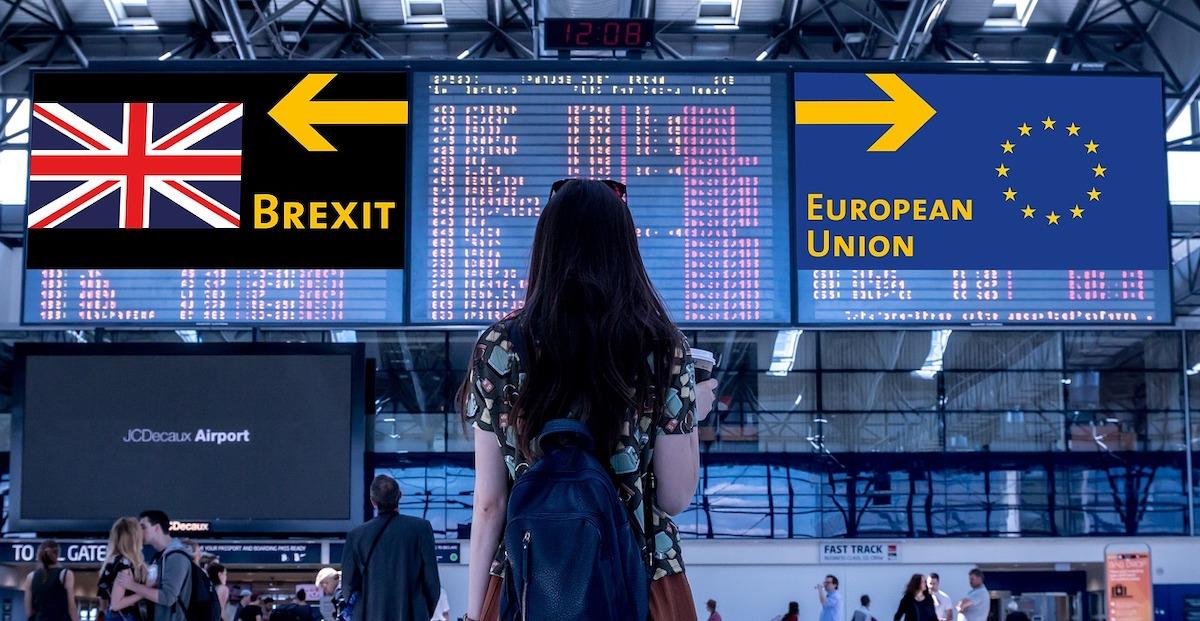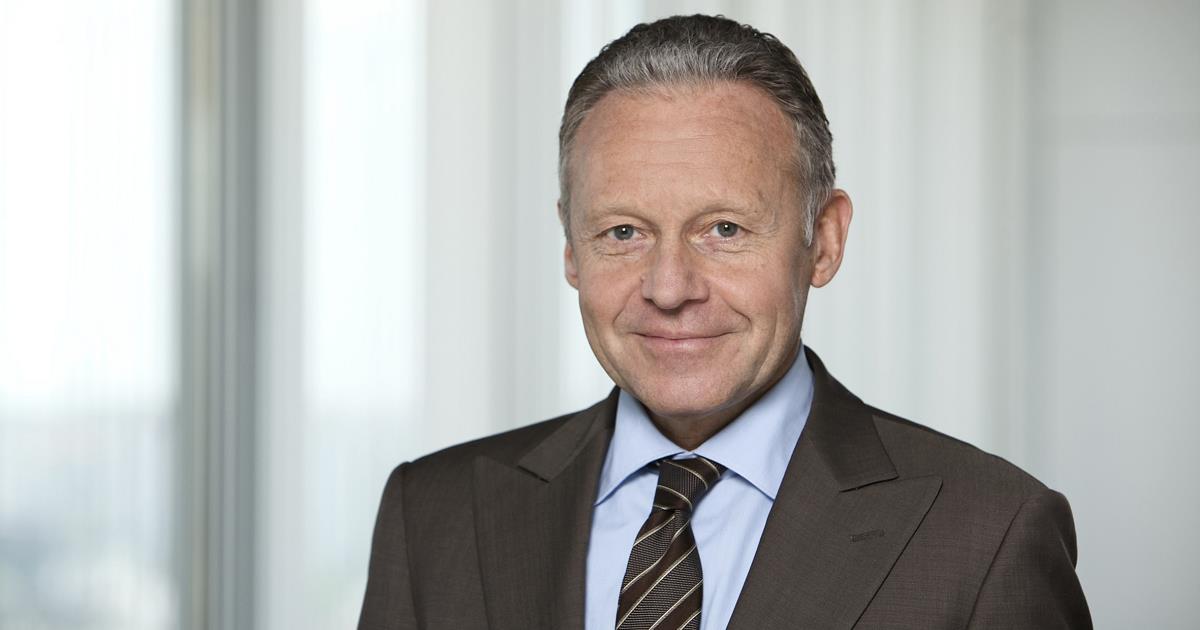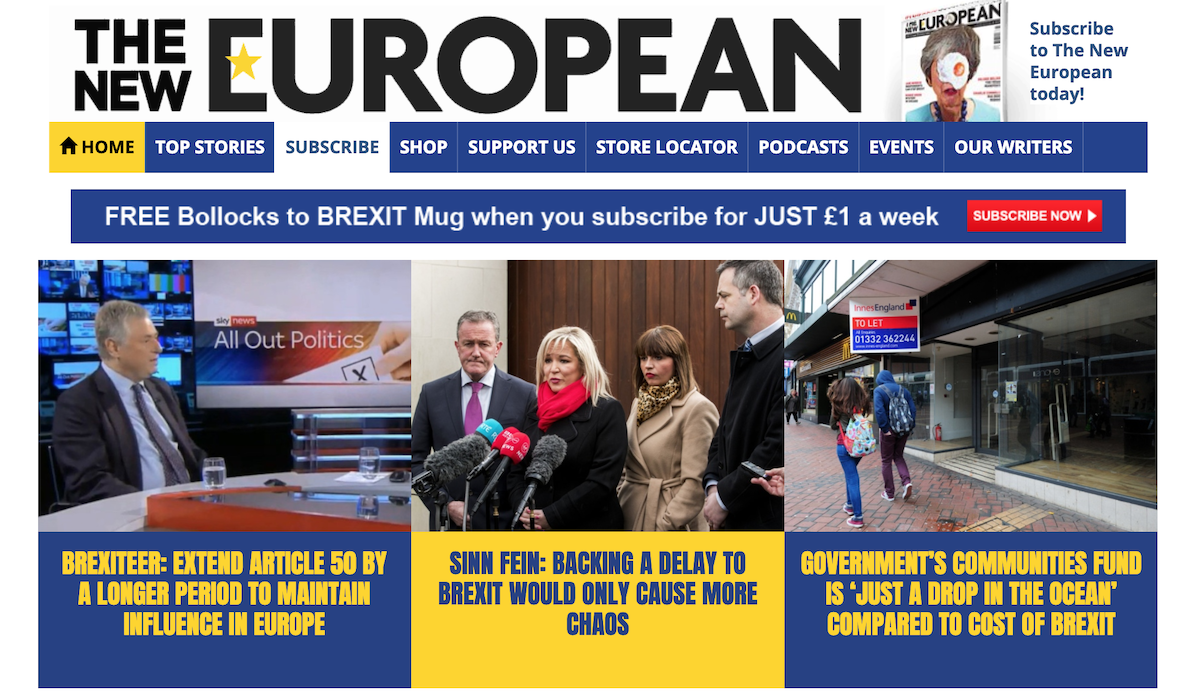UK and international media companies speak out on the impact of Brexit

On June 23rd 2016, the UK took the monumental – and largely unexpected – decision by way of a national referendum, to leave the European Union (EU). It is a political and economic body that the country has been a key member of for more than 40 years, which has delivered widespread peace and prosperity to a previously warring region.
The Vote Leave campaign has been found by the Electoral Commission to have broken electoral law, fined GBP£61,000 (US$80,500), and referred to the police for further investigation, while accusations around Russian intervention and wider campaign misconduct are now also being looked into.
Despite all of this, the country continues to move down an increasingly unclear path, and it’s worth pointing out that at the time of writing the views we have been given here are based on the state of play in the UK as of Monday 4 March. This is a volatile political situation that is now changing on an almost daily basis.
UK Prime Minister, Theresa May, has been determined to press ahead with what has now been publicly deemed to be ‘the will of the people’, raising concerns from businesses across all sectors about the disastrous financial implications that leaving the EU will bring. Matters are not helped by the growing prospect of a ‘No Deal’ Brexit. Having struggled to come up with a withdrawal agreement that both the EU and UK Parliament can agree upon, the fear now is that the UK could crash out of the Union without any kind of financial or legislative plan in place at all, and that could do even greater damage.
The media itself has largely been scapegoated by the extreme Left and Right of British politics alongside ‘elites’, ‘immigrants’, and ‘experts’ as a reason to leave the EU. With politicians like Donald Trump in the US constantly referring to ‘Fake News’ and Jeremy Corbyn, Leader of the Labour Party in the UK, recently claiming an intrinsic ‘hostility’ within the ‘mainstream media’, trust – particularly in the news section of the press – has been tested.
The media is a sector of the UK and global economies that contributes to society and accounts for hundreds of thousands of jobs. FIPP wanted to find out how Brexit could potentially impact both UK and international publishers, and what plans they are putting in place particularly in the event of a no-deal.
We begin with Ralph Büchi, FIPP chairman and COO of the Ringier Group and CEO of Ringier Axel Springer Switzerland, who was keen to point out in his interview that he is a Swiss citizen and therefore represents a voice from a country that is not technically a member of the EU (although is a member of the European Free Trade Association).
 |
Ralph Büchi
“Nobody really knows yet what will be the final outcome of the Brexit process so it is hard to predict or give proper advice,” says Büchi. “It is a fact however, that the tradition of fair trade and polite dialogues have come under heavy pressure these days worldwide. There are many challenges linked to a possible Brexit, from the labour market – the famous war for talents – to taxes and tariffs that could hinder international distribution or advertising.”
“Given the fact that many publishers are still very much focused on their national or even local home market, the biggest threat lies perhaps in the economic turbulences for the British advertising clients and the British consumers as a consequence of the Brexit.” “However, this threat could also turn into an opportunity. The publishers are sitting in the same boat as their clients. As they will be probably forced to focus more on the home market and therefore spend more advertising money there, the publishers could offer them strong support – and strengthen their home base. My conviction is that at the end, the quality and the uniqueness of the offered media package – journalism, distribution, data, marketing – will decide on the future success, independently of the Brexit. Quality outperforms politics.”
Despite the potential to increase local revenues in a more isolationist economy, it is also true that publishers now operate in a global digital ecosystem, taking on the likes of Facebook and Google. Does Büchi see Brexit as being a help or a hinderance to the kind of global collaboration required amongst publishers to take on this digital advertising duopoly?
“The digital market is international, by definition. And we have to cope with global players. Within our groups we are pushing our international collaboration hard, in the newsrooms as well as on the tech and data issues, inside and outside the EU. Seeing the strength of the global platforms, we all have an interest to fight for fair rules and a level playground with those giants on our national markets, but also within the EU and within the international organizations such as FIPP, the International News Media Association, or the World Association of Newspapers. It is an existential issue, and nobody can win it alone.”
A voice speaking very much from within the EU, and indeed within the UK, is the Professional Publishers Association (PPA), which represents the interests of publishers and providers of consumer, customer and business media in the country. A spokesperson from the organisation gave us the following statement:
“PPA have been at the forefront of efforts to represent industry views to government since the UK decision to leave the EU. Notably on ensuring an immigration system that gives publishers access to global talent, a trade regime that supports international growth, and a travel scheme that ensures journalists can report from across the EU. In surveys of members, we know that most publishers would have preferred a customs union and continued membership of the single market. And our latest survey shows that the vast majority of publishers are waiting for political decisions before deciding how to act, on various potential future UK-EU relationships.”
“While paper products and printed magazines are zero-rated under the EU’s common external tariffs, any delay at ports and customs is likely to have an impact on the supply chain. We know that some have taken precautions in holding additional paper and ink stocks, or moving production to the UK.”
One man who knows a great deal about Brexit is Matt Kelly, editor of The New European (TNE). The industry veteran spent 18 years at the Daily Mirror where he was instrumental in his role as publisher of the Mirror Group Digital network of websites. He now acts as chief content officer for TNE publisher, Archant, and admits that not only the decision to leave, but also the tonalities and extremities that have subsequently taken root in British politics, have come as a surprise.
 |
Matt Kelly. Photo: LinkedIn
“The whole saga has been surprising to be fair;” says Kelly. “Every week you think it’s hit rock bottom, the next week it gets worse. What is becoming increasingly clear – and I think it’s now obvious to a lot of people of both sides of the argument – is that Theresa May’s sheer bloody-mindedness is at the heart of so much of the problem. Her stubbornness not to listen to others and change tack even one iota is unprecedented in modern politics. Even Thatcher would take on board others’ views and modify policy to bring people with her. It’s hard to think of a PM more intransigent than Theresa May and that is why I think so much of the debate has become so violent. People shout louder when they think nobody is listening.”
The New European was first published on July 8th 2016, as a response to the EU referendum. Originally tag-lined “The New Pop-up Paper for the 48%” [who voted to remain in the EU] the platform has gone from strength to strength, with guest contributors like Tony Blair, Alastair Campbell and Nick Clegg to name a few. So does this mean that ironically, Brexit has actually been a positive occurrence for Archant?
“I think Brexit has had one big benefit for the publishing industry because everyone is once again highly energised around politics and there is a greater value on quality commentary. The exposure of the deep-seated flaws in how social media cannot properly filter out fake news should also have a benefit to trusted brands. I also think I now understand just how direct one has to be in generating an emotional engagement with your reader. I fear for publications that are so generalised that they’ve become fearful of taking a stance because it might alienate a proportion of their readership.”
“But of course anything that is bad for the country generally is bad for us. If our advertisers suffer, one of the first things many will do is cut back on marketing spend which will impact the industry.”
“From a logistics point of view our print sales are almost exclusively within the UK, although we have close to a thousand readers in the Republic of Ireland which could be affected if there’s a no deal outcome. But there will be broader problems for the industry, around cost and importing of newsprint and ink for one thing, that could affect us. Generally speaking though, I think our sector will be relatively untouched. It’s our farmers, car plant workers, and service industries that I feel desperately concerned for.”
 |
Naturally, publishers with a less Brexit-focussed content agenda have not been as forthcoming in airing their views on the issue, but a spokesperson for Hearst did give us this statement:
“Hearst remains confident in the direction of travel of our business and our continued success supports that our strategy is paying dividends for the business. With the combination of our market-leading brands, exceptional talent and a clearly defined print, digital and revenue diversification strategy, we are successfully future proofing our business for any eventuality.”
Alfred Heintze, chief operating officer of Burda International Holding, also answered our questions, telling FIPP that he was not necessarily surprised by the outcome of the EU Referendum:
“Brexit doesn’t come as a surprise to me, and equally I can understand why at this point it is still not an easy task to agree on the terms,” said Heintze. “The language sounds like an expression of strong beliefs and opinions. I’m convinced that in the end the interest to manage the leave of Great Britain in the most reasonable way and the common sense will prevail.”
 |
Like Hearst, Burda is one of the largest media companies in the world, with operations across a range of countries. In January 2017, the company announced the acquisition of UK publisher, Immediate Media, making a significant investment in the UK industry at a time when the referendum result had already been decided for some time.
“At Burda we have identified no big issues resulting from the different Brexit scenarios. Immediate Media is focused on the UK market with no vital dependency on international sources. We had never expected Brexit to have prosperous effects. So things have not really changed. From an industry level point of view, Brexit will not eliminate collaboration. It will just need more efforts and a more rigorous thinking to do right things in the right way. The businesses of licensing/syndication/etc. will not get easier, but thorough review can also guide to new solutions.”
Cravenhill Publishing offers a more independent view of Brexit’s potential impact on the UK industry and as a consequence, arguably a more open analysis. Producing two magazines: Transform – a global magazine on rebranding and brand development, and Communicate – a magazine on UK corporate communications, the company caters to both UK and international audiences.
“Let’s look at Communicate first,” says Andrew Thomas, owner and publisher of Cravenhill Publishing. “In terms of logistics or distribution tariffs, we don’t expect there to be any issues as a result of Brexit. Communicate is a UK-focused magazine and we cover corporate communications in the UK. But it’s precisely because of this UK focus that Communicate has the potential to be hardest hit. Our readers help their companies talk to audiences which are not necessarily its customers: employees, investors, regulators, corporate media and so on. Our advertising and commercial partner base comprise the comms, PR, video, design agencies etc. who help them reach that audience. If their businesses are affected they will reduce their comms spend, in turn hitting their suppliers, our advertisers and commercial partners.”
 |
Andrew Thomas. Photo: Twitter
“We are anticipating the average spend per customer declining and already we are seeing this. If we take our awards programmes, which form a large component of contribution to profit, we have already seen in the last six months companies that would have historically entered five or six categories now entering three or four. Some companies that would have bought a full table at the awards dinners might now take a half table for example.”
“Having said that, because suppliers themselves are anticipating a downturn in the economy they realise they need to reinforce a competitive differential in their positioning. So the flip side, fortunately, is that we’ve seen an increase in companies entering. Not a big increase, but still. We’ve also budgeted to spend more resource on increasing the number and range of companies entering. To this end we hope to neutralise the effects of Brexit.”
“If we look at Transform magazine, this is already global and we organise events in the US, Asia and the Middle East as well as distributing the magazine in these markets. Just under 50 per cent of our revenues come from outside Europe (revenue not contribution to profit). We launched Transform five years ago and one of the reasons behind its launch was effectively to give us a licence to operate our events globally, and seek revenue potential globally, which has mainly come out of the Middle East and Asia.”
More broadly, as a UK employer and somebody who has forged a successful career in the magazine industry, Thomas warns of the wider potential pitfalls of Brexit.
“Successful companies are starting to plan for Brexit by investing outside the UK – at one of our recent awards events I spoke to the heads of three agencies who are currently doing well who had all recently opened offices in continental Europe, two in Germany (Berlin and Cologne) and one in Amsterdam. Then there is talent attraction. We are a small business with only ten employees that often employs graduates. Historically, 20 per cent of our employees at any one time have been from the EU, but since the referendum we have seen no-one from the EU even apply to work for us.”
“The UK creative services industry is worth an estimated £101 billion ($133 billion) – our fishing industry isn’t even worth £1 billion ($1.3 billion). And yet I’ve not seen any reference to this sector in the Brexit discussion. Who is standing up for the publisher?”
The Cravenhill example offers a fascinating and candid insight to some of the genuine concerns currently being faced by the UK publishing industry today and in Angela Mills Wade, executive director of the European Publishers Council (EPC) – our final interviewee on the subject – we are here given an equally candid insight from somebody working at association level within mainland Europe.
 |
Angela Mills Wade. Photo: LinkedIn
“The Brexit decision was disappointing but ultimately not surprising,” says Mills Wade. “It was unfortunately an inevitability following decades of either no information or negative messaging about the impact of the EU on business and society. Its only since the referendum result, which was by no means overwhelmingly in support of leaving, that people have started to make up their own minds and see the value in being part of a wider Europe.”
“The EPC was founded in 1991 by CEOs and chairmen of leading newspaper and magazine groups to open a dialogue with the top decision makers in the EU institutions as they saw that more and more regulation was coming from the EU rather than national level. The founding members of the EPC knew they would be better informed and more effective as an international grouping. In turn the decision makers would be provided with business insights at the beginning of their work in formulating regulation that would ultimately affect media and publishing companies. And so began a relationship built on trust and mutual benefit.”
When faced with an increasingly isolationist UK-mantra and a possible no-deal exit from the EU, one might forgive the body that represents the interests of European publishers to take a hard-line view on future business with the UK. But as Mills Wade points out, it is unlikely that those operating at business level will be quite so ideological about cross-border decision making as their political counterparts.
“The media business is global and there is no question of withdrawing from the UK, or indeed vice versa. Indeed the EPC has active members from media groups based in Norway and Switzerland so UK companies will be in good company. News media online competes head on with global platforms for advertising revenue and consumer engagement and UK media whether news media or entertainment is highly sought after outside of the UK not least because English is so widely understood across the world. The members of the EPC are leading the way when it comes to the digital transformation of publishing companies and news media, building news and entertainment portals accessible by consumers globally, and I can’t see Brexit interfering much with their vision and drive to succeed.”
“Brexit, soft or hard, will in many ways be irrelevant. Although everyone is weighing up the various scenarios. Ultimately it is the quality, choice and popularity of content that drives consumer engagement so decisions about the future will be consumer and business driven rather than political… except when it comes to the impact of any regulation of course!”
“Talking of regulation, the EPC has been at the forefront of fighting for a new ‘neighbouring right’ for press publishers, like the rights that broadcasters, film and music producers already have, as part of the European reform of copyright. We first asked the president of the European Commission back in February 2015 for a new right to protect the investment publishers make in their online content production and distribution, and to establish they have a right to negotiate terms and conditions for the way in which their content is reused for commercial purposes by third parties, including platforms and news aggregators. This right formed part of the proposal for copyright reform launched in September 2016 to a barrage of anti-copyright lobbying not least from Google and YouTube.”
“Following over two years of intense lobbying on all sides, the success or failure of the reform generally, and a new right for press publishers in particular, is now in the hands of the European Parliament which has the final say very shortly. Ironically – and here’s a direct impact of Brexit, only publishers ‘established’ in the European Union will benefit. Our UK members have been an active part of this fight from the outset seeing the benefits of a Europe-wide copyright protection for their press publications which are widely read in many countries. The UK government will need to implement similar legislation to mirror that of the EU for British publishers to benefit from this historical step in protecting publishers’ valuable content.”
It is perhaps indicative of a global media industry that has continued to go from strength to strength throughout waves of change including digital migration, to social media, to the afore-mentioned rise of Facebook and Google, that optimism for success remains high both inside and outside of the UK following Brexit.
However, there are genuine concerns, and the greater tendency at present seems to be towards limiting the damage of Brexit, versus celebrating any potential upswings that this period of transformation might bring. Ultimately, Brexit has the potential to lead to a wider downturn in both the UK and global economies, and whether you’re thinking about advertiser revenues or consumer revenues, this shift is likely to have an impact.
More like this
Journalism does not need conservation, it needs fair competition
Apple News Magazines: the sticking points
Dow Jones becomes FIPP member and lays out international expansion plans
As the noose tightens, can Facebook face down regulatory scrutiny?








